Applications of AI
Artificial Intelligence has various applications in today's society. It is becoming essential for today's time because it can solve complex problems with an efficient way in multiple industries, such as Healthcare, entertainment, finance, education, etc. AI is making our daily life more comfortable and fast.
Following are some sectors which have the application of Artificial Intelligence:
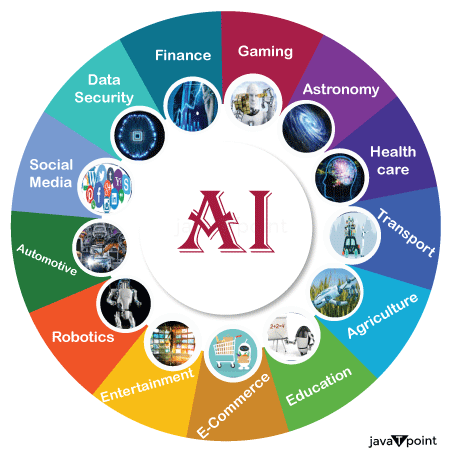
1. AI in Astronomy
- Automated Celestial Object Identification: AI systems can automatically identify and classify celestial objects in astronomical images, aiding in discovering new stars, galaxies, and other cosmic phenomena. In simple words, AI can spot and sort out things in space by looking at pictures. It's like having a cosmic detective that finds new stars, galaxies, and other mysterious objects without human help.
- Exoplanet Hunting: AI helps astronomers find planets outside our solar system by looking at lots of data. It can notice tiny changes in the light from stars, which tell us there might be planets around them, such as those caused by exoplanet transits.
- Analyzing Space Information: AI plays a crucial role in the study of space. It assists scientists by carefully examining vast amounts of complex data gathered from space observations. This helps astronomers uncover sophisticated patterns, unusual phenomena, and connections that might be otherwise very difficult to notice. Essentially, AI acts as a dedicated assistant, sifting through the cosmic data haystack to find the valuable needles of knowledge.
- Watching Space Events in Real-time: AI-powered tools can keep a constant eye on the night sky, looking out for sudden happenings like exploding stars (supernovae) or bursts of powerful gamma rays. This allows scientists to quickly study these events in more detail when they occur.
- Making Telescopes Smarter: AI is like a brain for telescopes. It helps them work better by changing their settings on the fly. For example, if the weather gets cloudy or if scientists want to study something specific in space, AI can adjust the telescope to get the best results. It's like having a telescope that can think and adapt to the situation.
2. AI in Healthcare

- Helping Doctors See Inside the Body Better: AI is like a super helper for doctors when they look at pictures of the inside of a patient's body, like X-rays or MRIs. It uses smart algorithms to find things like problems, tumors, or broken bones very accurately. This means doctors can figure out what's going on faster and more accurately, which is great for patients and for better diagnosis.
- Detecting Health Problems Early: AI acts as a health detective. It looks at your health information to find out if you might get certain diseases in the future. When it sees a high risk, doctors can step in early to help you stay healthy. This is really important for conditions like diabetes and heart problems because catching them at this time means better treatment and less trouble for the patient.
- Developing Medications Quickly and Cost-Effectively: AI acts like a super scientist in the lab. It uses certain algorithms to predict how different chemicals can fight diseases. This helps us make new medicines much quicker and at a low cost. So people can get the treatments they need sooner, and it doesn't cost as much money to manufacture them.
- Personalized Treatment Plans: AI looks at your health information, like your genes, what happened to you before, and how you've responded to treatments. Then, it makes a special plan just for you. This means your treatment works better and doesn't give you as many problems. It's like having a personalized health coach, which helps in avoiding complications caused by improperly prescribed medicine.
- Managing Hospital Functions and Resources: AI acts like a manager for hospitals. It helps with things like when patients come in, where to put resources like doctors and supplies, and how to make sure everything runs well. It can even guess how many patients might come in ahead of time, so hospitals use their staff and resources in the best way possible.
3. AI in Gaming
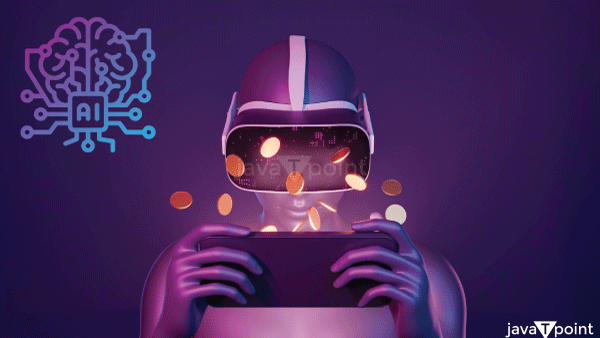
- Smart Game Characters: AI is like the brains behind game characters that aren't controlled by players. They make these characters, called NPCs, act more like real people or clever enemies. They can learn from what players do and change their behavior, which makes games more exciting and lifelike. Imagine playing a game where the bad guys learn and adapt to your moves - that's what AI does.
- Creating Game Worlds with AI: AI can make parts of video games all on its own. It can create levels, maps, and places to explore without people having to make them by hand. This means games can have bigger and more interesting worlds because AI does a lot of the work, kind of like a game world builder. It helps game developers, too.
- Making Games Look and Feel Real: AI helps to make games look and act more like the real world. They create graphics that look just like the things we see, and they make how things move in games feel realistic, like in real life. They even guess what players might do next so the game looks smooth and natural.
4. AI in Finance
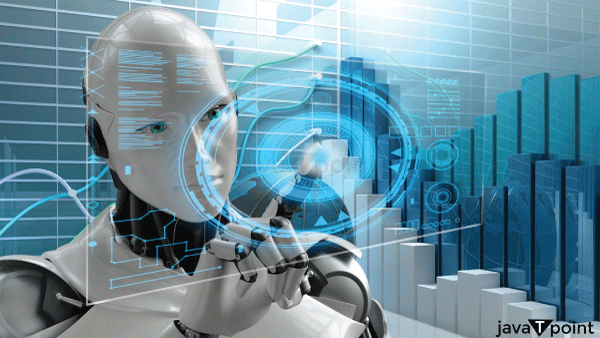
- Identifying and Prevention of Fraud: AI keeps an eye on bank transactions all the time. They act like super detectives who can spot strange things happening with money, like someone using a credit card in a weird way. When they see something fishy, they raise the alarm and help the bank stop bad people from stealing money. This happens really fast, without needing people to check every transaction.
- Automated Trading: AI helps a skilled trader who works automatically. It uses various algorithms to swiftly buy and sell stocks while analyzing all the market information. This boosts trading strategies, making investments more efficient and profitable.
- Risk Control: AI helps in examining lots of data to check how risky something is, like giving out loans or making investments. It looks at things like whether someone can pay back a loan or how safe an investment is. This helps banks and investment firms make smarter choices so they don't lose money and can help others save and grow their money.
5. AI in Data Security
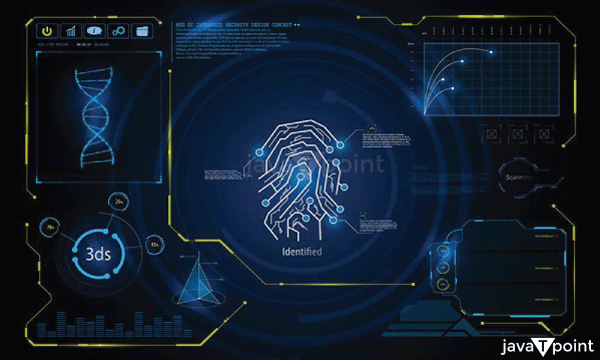
- Anamoly Detection: AI works as a digital detective. It looks at big piles of data and watches for anything strange or out of the ordinary, like someone sneaking into a digital vault or trying to steal secrets. When it sees something fishy, it raises the alarm, helping to keep important data safe from cyber-attacks.
- Predicting Threats: AI looks at past troubles and keeps an eye on new dangers that are popping up. By doing this, it can predict what bad things might happen in the future, like a security breach or a cyberattack. This way, companies can get ready in advance to protect their important data, sort of like putting up a strong fortress before any attack happens.
- Automated Safety Response: AI acts like a digital guardian that can respond when there's trouble. If it sees something bad happening, like a cyberattack, it can automatically take action. It might isolate the part that's under attack. This way, it keeps your important stuff safe in the digital world.
6. AI in Social Media
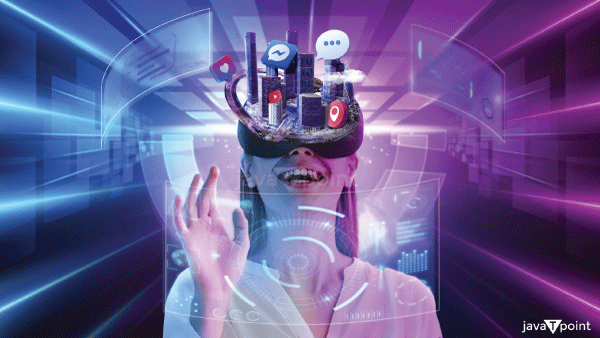
- Smart Suggestions: AI helps as a guide on social media. It watches what you like and what you do, and then it suggests things you might enjoy, like posts, videos, or ads. It acts as someone who knows your tastes and shows you stuff you're really into, making your social media experience more enjoyable and personalized.
- Virtual Assistants and Chatbots: AI chatbots and virtual assistants act as digital helpers on social media. They're quick to respond and can talk to you just like a real person. They answer your questions, share information, and even help with problems. It's like having an assistant available 24/7, making your social media experience smoother and more helpful.
- Sentiment Analysis: AI can figure out how people feel on social media. It looks at what they say in comments and posts and decides if it's a happy, sad, or neutral kind of message. This helps companies understand what people think so they can react in the right way. It's like having a mood gauge for the internet so businesses can make their customers happier.
- Trend Analysis: AI keeps track of all the chats and what's popular right now. This helps companies and regular folks understand what everyone's thinking and talking about. It acts as a social media news reporter that keeps customers in the loop about what's hot and what people are buzzing about.
7. AI in Travel & Transport
- Optimization of Route: AI plays a crucial role in optimizing travel routes, be it for parcel deliveries, public transportation, or personal trips. It efficiently calculates the swiftest and most economical paths from one point to another point, resulting in reduced travel time, minimized fuel consumption, and cost savings. Essentially, it serves as a pocket-sized travel advisor, enhancing the speed and budget-friendliness of your journeys.
- Smart Security Screening: AI helps in keeping traveling safely. It uses special skills to scan bags and people quickly. It can spot things that might be dangerous and make security checks faster and smoother. This means you can fly knowing that the airport is working hard to keep you safe without making your travel a hassle.
- Chatbots for Travel Support: AI chatbots are like digital travel helpers. These chatbots are capable of aiding you in various tasks such as reserving tickets, suggesting interesting destinations to explore, and providing responses to your inquiries, much like an affable travel consultant. This elevates the convenience and pleasure of your travel adventures, as you can access assistance whenever it's required, even during late-night hours.
- AI Prevents Breakdowns: AI works like a fortune teller for machines like cars, planes, and roads. It predicts when they might get sick and need fixing. This way, we can fix them before they break down and cause problems. It keeps everything running smoothly, making travel safer and saving a lot of time and money.
8. AI in Automotive Industry
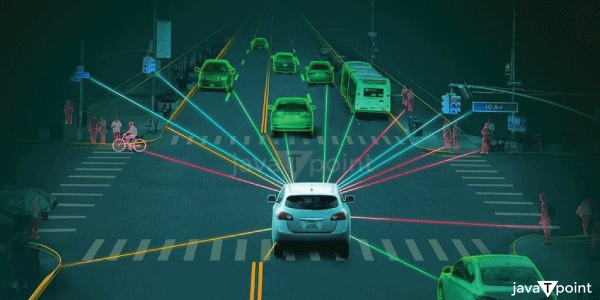
- Self-Driving Cars: AI is like the brain of self-driving cars. It looks at what's happening around the car using various sensors and decides what the car should do, like turning or stopping. It's like having a super-smart driver that doesn't need a person. This makes cars drive on their own, making travel more convenient and safer because there's no need for a human to steer.
- Advanced Driver Assistance Systems (ADAS): AI adds extra smarts to your car to keep you safe. It possesses the capability to autonomously adjust your vehicle's speed while on the highway, assist in maintaining your lane, and swiftly engage the brakes when detecting potential hazards. These intelligent functionalities function akin to a co-pilot, ensuring your safety by preventing accidents and ensuring your safe arrival at your intended destination.
- Streamlining Production Processes: AI watches over machines, checks if they're healthy, and makes sure they don't break. It also helps with ordering materials and makes sure everything is made just right. This makes things faster, cheaper, and better quality, like having a super factory manager.
- Voice Recognition: AI-driven voice recognition systems allow drivers to control various functions in their vehicles, such as navigation, music, and communication, using natural language.
9. AI in Robotics:
- Self-Moving Robots: AI makes robots really smart at moving around on their own. It's like giving them a built-in GPS and a clever brain. They can figure out where to go and how to get there without bumping into things or needing a person to show them the way. This helps them do tasks like delivering packages or exploring places on their own, making them super independent.
- Object Recognition and Manipulation: AI gives robots sharp eyes and clever hands. It helps them see objects clearly and then pick them up and move them just right. This is super useful, especially in places like warehouses, where they can do things like sorting and packing items accurately.
- Collaboration of Humans and Robots: AI makes it possible for robots to be great team players with people. They can work alongside humans, helping out and learning from them. If a person does something, the robot can understand and follow their lead. This makes workplaces safer and more efficient, like having a trusty robot colleague who understands and supports you.
10. AI in Entertainment
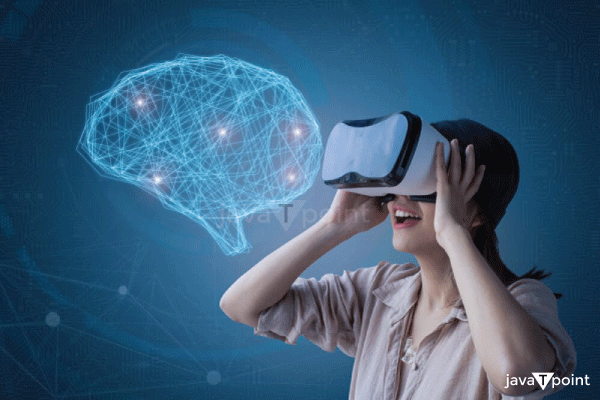
- Recommendation of Content: AI looks at what customers have liked before, such as movies or music, and suggests new things that they might enjoy. It's like having a personal entertainment guide, making their experience more enjoyable by offering just what they like.
- AI as a Creative Assistant: AI acts as a creative sidekick for artists and creators. It can make music, art, and videos or help improve what they create. It's like having a helper that speeds up the creative process, making it easier to bring new ideas to life. This way, artists can focus more on their vision, and AI handles the technical bits.
- Live Event and Performance Enhancements: AI makes live events and performances even cooler. It can translate what people are saying in real time, add cool effects that blend with what's happening, and even predict what the audience will like. This makes shows and events more exciting and enjoyable for everyone there. It's like having a magic touch that brings performances to life in new and amazing ways.
11. AI in Agriculture
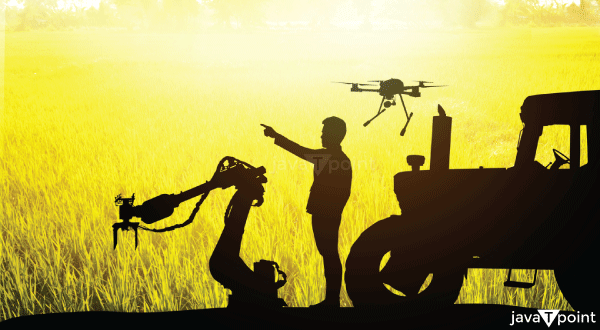
- Crop Observation and Control: AI, with the help of various sensors, acts as a guardian for crops on the farm. It keeps an eye on them, making sure they're healthy and growing well. It tells farmers when it's the best time to plant, water, and harvest the most crops. It's like having a farm expert who ensures the fields are super productive so farmers can get the most out of their hard work.
- Smart Farming for Efficiency: AI makes farming super efficient. It helps farmers use just the right amount of things like fertilizer and pesticides, not too much and not too little. This means there's less waste, and the crops grow better. It's like having a precise chef in the field, making sure everything is just perfect for the plants to thrive and produce lots of food.
- Automated Farming: AI controls a number of machines like tractors and drones. These machines can plant seeds, remove weeds, and spray stuff on crops all by themselves. They do it super well and exactly as needed, like having expert farmers who never get tired and work perfectly, making farming easier and more efficient.
- Monitoring Livestock: AI uses special sensors and smart data analysis to make sure they're healthy and happy. If anything is wrong, it alerts the farmer. This way, the animals are well taken care of, and the farm can run smoothly. It's like having a watchful friend for the animals, making sure they're okay and the farm works better.
12. AI in E-commerce
- Personalized Product Suggestions: AI looks at what you've looked at and bought before and suggests things you might really like. It's like having a personal shopper who knows your style, making your online shopping more fun and helping you discover new things you might want to buy. Plus, it's great for the store because it helps them sell more, and as a customer, it saves your time.
- Managing Inventory: AI takes care of a store's shelves. It predicts how much of each product people will buy and automatically orders more when needed. In this manner, there exists an optimal balance of products, preventing excessive stock that ties up funds while also ensuring an adequate supply to prevent customers from leaving without making a purchase.
- Dynamic Pricing: Artificial intelligence dynamically adjusts pricing according to demand, market competition, and inventory levels, ensuring customers receive optimal value while enhancing the store's profitability.
13. AI in education:
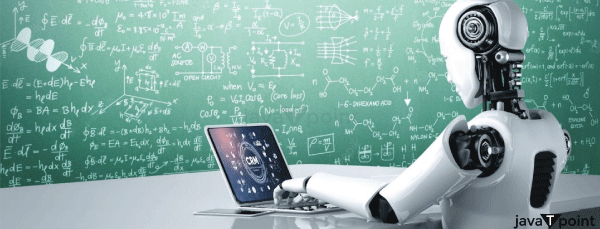
- Education Content Creation: AI acts as a teaching assistant for educators. It helps them make things like quizzes, lesson plans, and study materials. This makes teaching easier and better because educators have more time for students, and the materials are top-notch. It's like having a super-efficient helper who does the paperwork, leaving teachers more time to inspire students.
- Virtual Learning Assistants: AI is there to answer questions, explain things, and offer help whenever students need it, day or night. This makes learning easier and more fun because students have someone to turn to whenever they're stuck. It also takes some pressure off teachers because AI can handle common questions, leaving more time for personalized teaching.
- Automated Assessment and Instant Feedback: AI acts like a super-speedy homework checker. It looks at your assignments and tests and gives you grades and feedback right away. This aids in gauging your progress and pinpointing areas for potential enhancement. Furthermore, it alleviates some of your teacher's grading responsibilities, allowing them to dedicate more time to teaching rather than paper evaluation.
- Customized Learning Routes: AI figures out what you're good at and where you might need extra help. Then, it gives you the right stuff to learn and the best way to learn it. This makes learning easier and more fun.
Conclusion
The applications of AI are vast and diverse, touching nearly every aspect of our lives. From healthcare to finance, astronomy to gaming, and transportation to entertainment, AI is reshaping industries and propelling us into a future where the possibilities seem limitless. As AI continues to advance, its impact on society is poised to grow, promising increased efficiency, better decision-making, and innovative solutions to some of our most pressing challenges. Embracing and responsibly harnessing the power of AI will be key to unlocking its full potential and ensuring a brighter future for all.
|










 For Videos Join Our Youtube Channel: Join Now
For Videos Join Our Youtube Channel: Join Now









